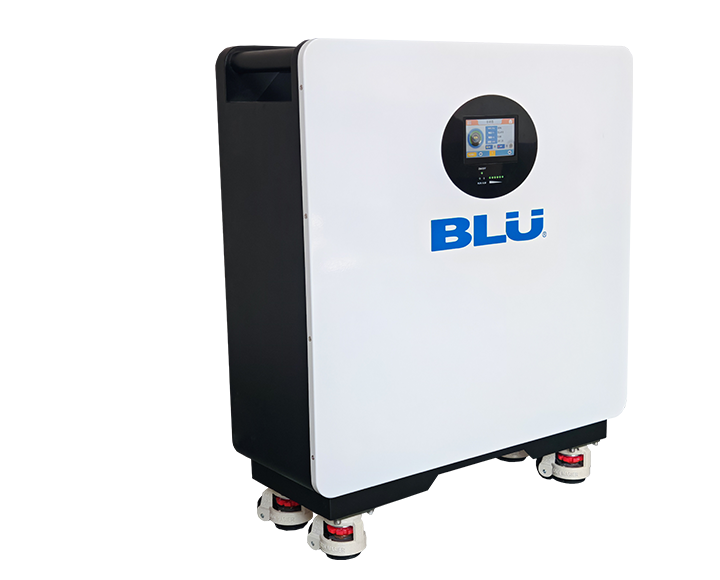5kWh BESS Module: A Key Component of Modern Energy Solutions
5kWh BESS Module: A Key Component of Modern Energy Solutions
Table of Contents
Introduction to Battery Energy Storage Systems
What is a 5kWh BESS Module?
Key Features of the 5kWh BESS Module
Benefits of Integrating a 5kWh BESS Module
Applications of the 5kWh BESS Module
5kWh BESS Module vs. Traditional Energy Solutions
The Future of Battery Energy Storage Systems
F
2025-06-15

5kWh BESS Module: A Key Component of Modern Energy Solutions
Table of Contents
- Introduction to Battery Energy Storage Systems
- What is a 5kWh BESS Module?
- Key Features of the 5kWh BESS Module
- Benefits of Integrating a 5kWh BESS Module
- Applications of the 5kWh BESS Module
- 5kWh BESS Module vs. Traditional Energy Solutions
- The Future of Battery Energy Storage Systems
- Frequently Asked Questions
- Conclusion
Introduction to Battery Energy Storage Systems
In the era of renewable energy, the need for efficient energy storage solutions has never been more critical. **Battery Energy Storage Systems (BESS)** have emerged as essential components in managing the intermittent nature of renewable resources like solar and wind power. Among these, the **5kWh BESS module** stands out due to its compact design, scalability, and versatility. As we transition towards a more sustainable energy future, understanding the role and benefits of the 5kWh BESS module is vital.
What is a 5kWh BESS Module?
The **5kWh BESS module** refers to a specific battery storage unit designed to store and deliver up to 5 kilowatt-hours of electrical energy. This system can be integrated into various energy setups, including residential, commercial, and industrial applications. It typically comprises several key components, including:
1. Battery Cells
The heart of the BESS, these cells are responsible for storing electrical energy. Lithium-ion batteries are commonly used due to their high energy density and longevity.
2. Inverter
This component converts the direct current (DC) stored in the batteries into alternating current (AC), making it usable for standard electrical appliances.
3. Battery Management System (BMS)
The BMS monitors and manages battery performance, ensuring safety and efficiency in energy storage and discharge cycles.
4. Communication Interface
This allows for real-time monitoring and control of the BESS module, providing users with insights into performance metrics, energy usage, and system health.
Key Features of the 5kWh BESS Module
The 5kWh BESS module boasts several features that make it an attractive option for various energy applications:
1. Scalability
The modular design allows for easy expansion. Users can connect multiple BESS modules to increase storage capacity as their energy needs grow.
2. High Efficiency
Modern BESS modules typically operate at over 90% efficiency, minimizing energy loss during storage and retrieval.
3. Compact Design
With its small footprint, the 5kWh BESS module is suitable for both residential and commercial installations where space may be limited.
4. Smart Technology Integration
Equipped with advanced monitoring features, users can track energy usage, optimize performance, and schedule charging during off-peak hours for cost savings.
5. Environmentally Friendly
The use of lithium-ion technology contributes to a reduced carbon footprint, as these batteries can be recycled and reused.
Benefits of Integrating a 5kWh BESS Module
Integrating a 5kWh BESS module into energy systems presents numerous advantages:
1. Energy Independence
By storing energy generated from renewable sources, users can reduce dependence on the grid and lower electricity bills.
2. Peak Shaving
During peak demand periods, the BESS module can release stored energy, helping to avoid high energy rates and stabilize the grid.
3. Backup Power Supply
In case of grid outages, the 5kWh BESS can provide backup power for critical systems, enhancing reliability and safety.
4. Enhanced Renewable Integration
The BESS module allows for better integration of renewable energy sources, smoothing out fluctuations and ensuring a steady energy supply.
5. Cost Savings
Investing in a 5kWh BESS module can lead to significant long-term savings on energy costs, especially in regions with variable electricity prices.
Applications of the 5kWh BESS Module
**The versatility of the 5kWh BESS module** allows it to be utilized across various sectors:
1. Residential Use
Homeowners can integrate BESS to store solar energy, reducing reliance on the grid and providing power during outages.
2. Commercial Applications
Businesses can utilize BESS for peak shaving, enhancing energy efficiency and reducing operational costs.
3. Industrial Settings
Industries can implement BESS to manage large-scale energy needs and support sustainable practices.
4. Electric Vehicle (EV) Charging Stations
BESS modules can support EV charging stations by storing energy during low-demand periods and discharging during peak usage.
5. Remote Locations
In off-grid areas, the 5kWh BESS module can serve as a reliable energy source, coupled with renewable installations like solar panels.
5kWh BESS Module vs. Traditional Energy Solutions
When comparing the 5kWh BESS module with traditional energy solutions, several key differences emerge:
1. Storage Capacity
Unlike traditional generators that provide instant power, the BESS module stores energy for later use, allowing for better energy management.
2. Efficiency
BESS systems offer higher efficiency rates compared to conventional backup generators, resulting in less wasted energy.
3. Environmental Impact
The BESS module is a cleaner alternative, significantly reducing carbon emissions compared to fossil fuel-powered energy solutions.
4. Noise Levels
BESS modules operate silently, whereas traditional generators can be noisy and disruptive, making BESS more suitable for residential areas.
5. Maintenance Requirements
BESS systems typically require less maintenance compared to traditional generators, reducing operational costs over time.
The Future of Battery Energy Storage Systems
As technology continues to advance, the future of Battery Energy Storage Systems, including the 5kWh module, looks promising. Innovations in battery chemistry, such as solid-state batteries, may enhance energy density and safety. Moreover, as renewable energy adoption increases, the demand for efficient energy storage solutions is expected to grow.
Emerging trends in smart grid technology also indicate that BESS modules will play an integral role in energy management systems, facilitating better demand response and grid stabilization. **The integration of artificial intelligence (AI)** and machine learning can optimize energy storage and usage patterns, further enhancing the efficiency of BESS systems.
Frequently Asked Questions
1. What is the lifespan of a 5kWh BESS module?
Typically, a 5kWh BESS module can last between 10 to 15 years, depending on usage, maintenance, and environmental factors.
2. Can I install a 5kWh BESS module myself?
While some homeowners may attempt DIY installation, it is recommended to have a professional install the system to ensure safety and compliance with local regulations.
3. How does a 5kWh BESS module benefit solar energy users?
The module stores excess energy generated by solar panels, allowing users to utilize it during low production times or at night.
4. Is the 5kWh BESS module suitable for larger commercial operations?
Yes, multiple 5kWh BESS modules can be interconnected to meet the energy storage needs of larger commercial operations.
5. What maintenance is required for a 5kWh BESS module?
Regular maintenance includes checking battery health, monitoring the BMS, and ensuring the inverter is functioning properly.
Conclusion
The **5kWh BESS module** represents a significant advancement in energy storage technology, offering numerous benefits across various applications. Its efficient design, scalability, and environmental advantages make it a critical component of modern energy solutions. As we continue to innovate and embrace sustainable practices, the role of the 5kWh BESS module in enhancing energy storage and management will undoubtedly grow, paving the way for a greener and more efficient energy future.
Key words:
Previous:
Related News


